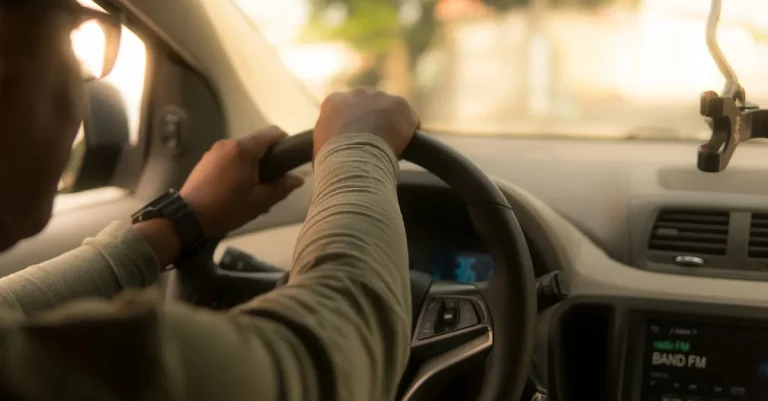Are Uzis Legal In Texas? A Look At The State’S Gun Laws
The Uzi submachine gun is one of the most recognizable firearms in the world, but are these compact automatic weapons legal for private ownership in Texas? With gun laws varying widely across different states, many gun enthusiasts interested in owning an Uzi are unsure about the legality in the Lone Star State.
If you’re short on time, here’s a quick answer to your question: In most cases, civilian ownership of new automatic Uzi submachine guns is illegal in Texas. However, residents can own grandfathered semiautomatic variants or registered automatic Uzis that were purchased before the 1986 federal ban.
Overview of Federal Laws
When it comes to gun laws in the United States, it’s important to understand that there are both federal and state regulations in place. In the case of Texas, the state’s gun laws are influenced by federal laws, which play a significant role in determining what types of firearms are legal to own and possess.
Let’s take a closer look at two key federal laws that impact gun ownership in Texas.
National Firearms Act of 1934
The National Firearms Act (NFA) was enacted in 1934 and is one of the earliest federal laws regulating firearms. Its primary aim was to regulate certain types of firearms, including fully automatic weapons, short-barreled rifles, and shotguns, as well as suppressors and destructive devices such as grenades.
Under the NFA, individuals who wish to possess these firearms must go through an extensive process that includes registering the firearm with the Bureau of Alcohol, Tobacco, Firearms and Explosives (ATF), paying a tax, and undergoing a background check.
It’s important to note that the NFA does not ban these firearms outright, but rather imposes strict regulations on their ownership and transfer.
Firearm Owners Protection Act of 1986
The Firearm Owners Protection Act (FOPA) was signed into law in 1986 with the goal of protecting the rights of gun owners while also addressing certain concerns related to the illegal use of firearms.
One of the key provisions of FOPA is the ban on the manufacture and sale of new fully automatic firearms for civilian use. However, the law allows for the continued possession and transfer of automatic firearms that were lawfully owned and registered prior to the enactment of FOPA.
This means that Uzis and other fully automatic firearms that were manufactured before 1986 can still be legally owned and possessed by individuals who comply with the requirements set forth by the NFA.
It’s important for individuals in Texas to understand that while the federal laws outlined above provide a framework for gun ownership, the state of Texas also has its own set of laws and regulations that must be adhered to.
These laws can vary and may impose additional restrictions or requirements for gun owners in the state. Therefore, it’s crucial to familiarize oneself with both federal and state laws to ensure compliance and responsible gun ownership.
Texas State Gun Laws
When it comes to firearms, Texas is known for its strong support of the Second Amendment and its relatively lenient gun laws. However, there are still certain restrictions and regulations in place to ensure public safety. Let’s take a closer look at some key aspects of Texas state gun laws.
Ban on new machine guns
Under Texas law, the possession, manufacture, or sale of fully automatic firearms, commonly referred to as machine guns, is generally prohibited. This ban applies to both individuals and businesses. However, there are some exceptions to this rule.
One exception is if the machine gun falls under the National Firearms Act (NFA). The NFA allows individuals to possess machine guns that were registered with the Bureau of Alcohol, Tobacco, Firearms and Explosives (ATF) prior to May 19, 1986.
These NFA-registered machine guns can be legally owned and transferred in Texas, provided the appropriate paperwork and tax stamps are obtained.
Exceptions for NFA-registered weapons
As mentioned earlier, NFA-registered machine guns are allowed in Texas. Additionally, other NFA-regulated firearms such as short-barreled rifles (SBRs), short-barreled shotguns (SBSs), and silencers are also permitted.
However, it’s important to note that these firearms require a thorough background check, fingerprinting, and the payment of a $200 tax stamp.
It’s worth mentioning that while these NFA-registered firearms are legal in Texas, they may still be subject to certain restrictions at the federal level. Therefore, it’s crucial for gun owners to stay up to date with both state and federal regulations.
No permit required for most lawful gun owners
In Texas, most law-abiding citizens who are at least 18 years old can openly carry a long gun, such as a rifle or shotgun, without needing a permit. However, for the concealed carry of handguns, a license is required.
Obtaining a License to Carry (LTC) allows individuals to carry a handgun, either openly or concealed, in public places. The application process includes a background check, fingerprinting, completion of a training course, and payment of a fee. Once issued, the LTC is valid for five years.
It’s important to note that certain locations, such as schools, government buildings, and private property with signage prohibiting firearms, are off-limits even for those with a valid LTC. Violating these restrictions can result in criminal charges.
Options for Owning a Uzi in Texas
When it comes to gun laws in Texas, one question that often arises is whether Uzis are legal. Uzis are a type of submachine gun that have gained popularity over the years. Let’s take a closer look at the options for owning an Uzi in Texas.
Purchase a pre-ban fully automatic Uzi
One option for owning an Uzi in Texas is to purchase a pre-ban fully automatic Uzi. However, it’s important to note that fully automatic firearms are heavily regulated under federal law. In order to legally purchase a fully automatic Uzi, one must obtain a special license from the Bureau of Alcohol, Tobacco, Firearms and Explosives (ATF) and comply with all federal regulations.
It’s also worth mentioning that pre-ban fully automatic Uzis can be quite expensive and hard to come by.
Buy a semiautomatic Uzi clone
Another option for owning an Uzi in Texas is to buy a semiautomatic Uzi clone. These clones are similar in appearance and function to the original Uzi, but they are limited to semi-automatic fire only. This means that each pull of the trigger will result in a single shot being fired.
Semiautomatic Uzi clones are legal to purchase and own in Texas, as long as they comply with all state and federal regulations.
Build your own legal semiautomatic Uzi
If you’re a gun enthusiast looking for a hands-on project, you may consider building your own legal semiautomatic Uzi. Under federal law, it is legal to build a firearm for personal use without a license, as long as the finished product is not intended for sale or transfer.
This option allows individuals to customize their Uzi to their own specifications, while still remaining within the boundaries of the law.
It’s important to note that regardless of the option you choose, it’s crucial to familiarize yourself with all applicable laws and regulations. Failure to do so can result in serious legal consequences.
For more information on Texas gun laws, you can visit the official website of the Texas Department of Public Safety at https://www.dps.texas.gov/.
Restrictions and Penalties
Ban on possession for felons
Under Texas gun laws, individuals with a felony conviction are prohibited from possessing firearms, including Uzis. This restriction is in place to ensure public safety and prevent those with a history of criminal activity from accessing dangerous weapons.
It is important to note that violating this ban can result in severe penalties, including imprisonment and fines.
Concealed carry restrictions
Texas law allows for the concealed carry of firearms, but there are certain restrictions that apply. In order to legally carry a firearm, individuals must obtain a Concealed Handgun License (CHL) or a License to Carry (LTC) from the Texas Department of Public Safety.
These licenses require background checks, training, and compliance with specific regulations. It is essential to familiarize oneself with the requirements and regulations governing concealed carry in Texas to avoid legal ramifications.
Punishments for illegal possession
Engaging in the illegal possession of firearms, including Uzis, can result in significant penalties under Texas law. The severity of the punishment depends on various factors, such as the type of firearm, prior criminal record, and the circumstances surrounding the possession.
Violators may face charges ranging from misdemeanors to felonies, which can lead to imprisonment, fines, or both.
It is crucial to stay informed about the ever-changing gun laws in Texas to ensure compliance and avoid legal trouble. The Texas Department of Public Safety website (www.dps.texas.gov) provides detailed information on the state’s gun laws and regulations, which can serve as a valuable resource for those seeking to understand their rights and responsibilities as gun owners in Texas.
How to Stay Legal When Owning a Uzi in Texas
When it comes to owning firearms in Texas, it’s important to understand the laws and regulations surrounding their possession. This includes knowing whether Uzis, a popular type of submachine gun, are legal to own in the Lone Star State.
Here are a few key considerations to help you stay on the right side of the law when it comes to owning an Uzi in Texas.
Review all federal, state, and local laws
Before purchasing an Uzi or any other firearm, it’s crucial to familiarize yourself with the applicable federal, state, and local laws. In Texas, the possession and ownership of Uzis are generally legal, but certain restrictions and regulations may apply.
For instance, individuals must meet certain criteria, such as being at least 18 years old for long guns or 21 years old for handguns, and passing a background check. It’s also important to understand any restrictions on the use and carrying of firearms in specific locations, such as schools or government buildings.
For the most accurate and up-to-date information, it is recommended to consult the Texas Department of Public Safety’s website https://www.dps.texas.gov/ or contact local law enforcement.
Understand classifications of automatic vs. semi-auto
One of the key factors to consider when owning an Uzi in Texas is the classification of the firearm. Uzis can be categorized as either fully automatic or semi-automatic. It’s crucial to note that while semi-automatic Uzis are generally legal to own in Texas, fully automatic ones are subject to more stringent regulations.
These regulations include obtaining a special license, such as a Class 3 license, and adhering to specific restrictions and requirements set by the Bureau of Alcohol, Tobacco, Firearms and Explosives (ATF).
Understanding the difference between automatic and semi-automatic firearms is essential to ensure compliance with the law and avoid any legal issues.Consult local law enforcement with any questions
If you have any questions or concerns regarding the ownership or legality of owning an Uzi in Texas, it is always recommended to reach out to local law enforcement. They can provide guidance and clarify any uncertainties you may have.
Remember, it’s better to seek clarification and ensure compliance rather than unintentionally violating the law. Law enforcement officials have the knowledge and expertise to assist you with any inquiries and help you navigate the complex landscape of firearm regulations in Texas.
By reviewing the relevant laws, understanding the classifications of Uzis, and consulting local law enforcement when needed, you can stay legal and enjoy owning an Uzi in Texas. Remember to always prioritize safety, responsible ownership, and adherence to the law when exercising your rights as a firearm owner.
Conclusion
While automatic Uzi submachine guns are largely prohibited for civilians in Texas, there are still legal options for residents interested in purchasing and owning semiautomatic variants. By thoroughly researching federal and Texas state laws, understanding classifications, and consulting local authorities, lawful gun owners can balance safety and compliance when owning one of these iconic firearms.








